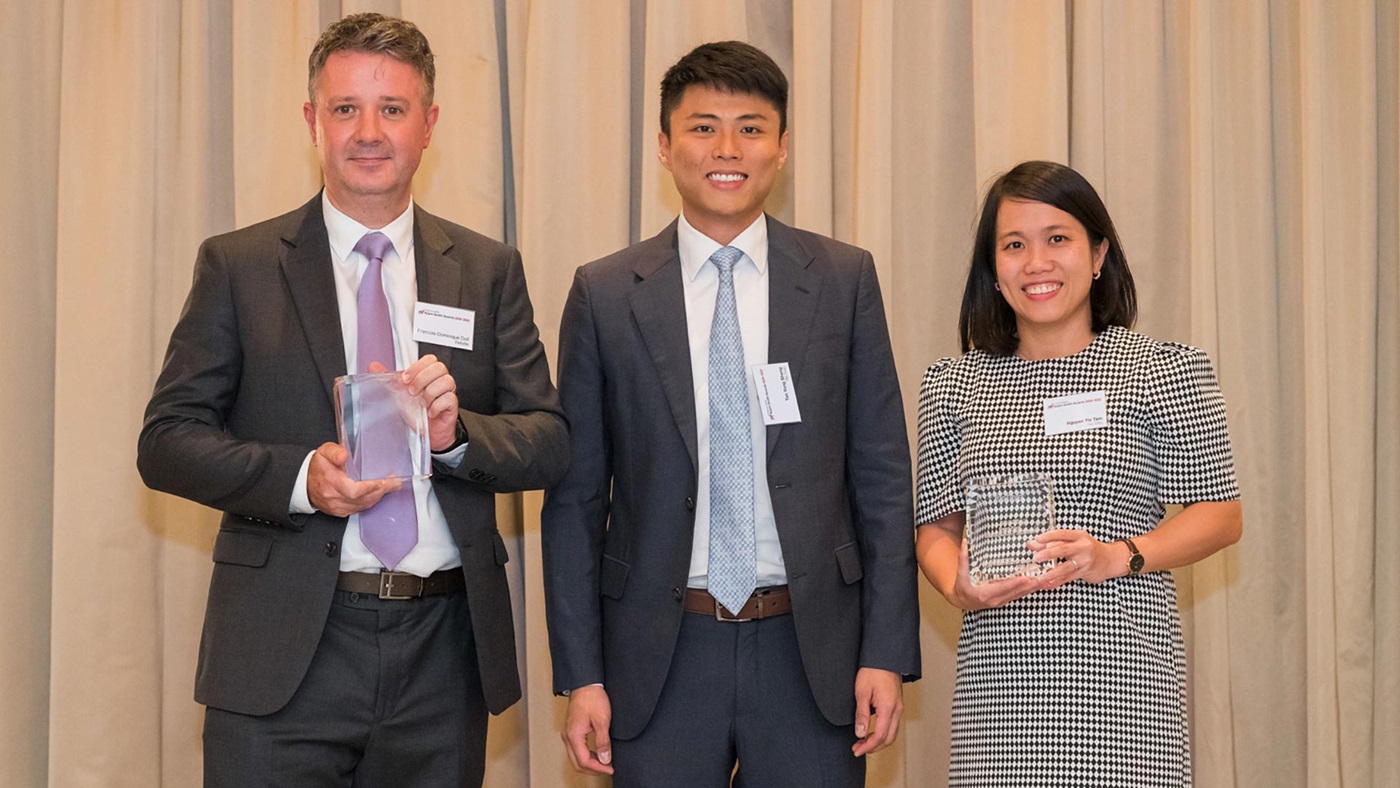
Photo of François Dominque Doll, Deloitte, Tan Yong Sheng and Thi Tam Nguyen, Rio Tinto Singapore Holdings Pte Ltd.
Tan Yong Sheng
Treasury Ops & Markets
Thi Tam Nguyen
Senior Analyst, Risk Management

Rio Tinto is a mining and metals company operating in 35 countries around the world.
in partnership with

Six key areas of risk management focus at Rio Tinto
The challenge
Global crises such as the COVID-19 pandemic have highlighted risk concerns – including financial risks, cyber risk and tight liquidity flow. In addition, corporates face volatility from an inflationary environment with rising interest rates. Rio Tinto needed a solution which addressed these risks.
The solution
Rio Tinto’s commercial treasury team follows a robust framework which consists of six elements:
- Risk management framework – roles and responsibilities, standards, procedures and guiding principles for effective, consistent and integrated risk management are clearly stated, communicated and practised.
- Risk analysis and management – the team adopts the CAMELS1 rating system to assess the strengths of their banks.
- Reporting oversight and insights – during the pandemic when fraudulent activity was on the rise, the team took a pro-active stance to have periodic check-ins with their cash management banks to understand the measures established and whether there has been any suspicious activity in the bank accounts.
- Systems technology and data analytics – Rio Tinto embarked on a project to improve the accuracy of its forecasts. A machine learning engine was developed in-house to improve the accuracy of Rio Tinto’s short-term accounts receivable forecasting.
- Capability and culture – Rio Tinto Group is committed to building an environment that is sensitive towards identifying, detecting and mitigating potential frauds. This includes periodic partnerships with banks to organise ‘knowledge sharing’ sessions to educate its people and raise awareness on fraud identification and response.
- Risk assurance – internal audits are performed to assess the design effectiveness of controls in commercial treasury to mitigate key process risks.
“Our risk management solution stays up to date with the macro environment and is agile in anticipating and reacting to existing risks. It also trains and educates the team to be equipped with skills to handle risks,” says Tan Yong Sheng, Director, Treasury Ops & Markets.
Best practice and innovation
The commercial treasury team demonstrates a high level of risk awareness and is constantly taking an intuitive approach to manage risks. This includes leveraging technology to increase accuracy, transparency and efficiency.
The team uses business intelligence tools to pull information from different systems such as Quantum, FXall and Clearwater for their end-of-day reporting to identify any limit breach and exceptions.
The team uses machine learning to analyse cash flow trends and this data enables the team to make a more accurate forecast.
“We leverage public indices and use financial indicators to come up with investment risk scores and depending on these scores, it proposes and adjusts our investment portfolio accordingly,” explains Thi Tam Nguyen, Senior Analyst, Risk Management
For forex, the team uses FXall, which is fully automated without human intervention to carry out the trades, which increases efficiency and productivity, while minimising operational errors.
Key benefits
- Process efficiencies.
- Increased automation.
- Risk mitigated.
Rio Tinto regularly reviews its controls to ensure they fit the objectives. In addition to getting external verifications to ensure controls are working well, benchmarking exercises are held to ensure there are no gaps in the solutions. In summary, the team has put a lot of thought into the framework and makes continuous tweaks along the way to verify its best in class approach to managing risk.
Footnote
- CAMELS is an acronym for capital adequacy, assets, management capability, earnings, liquidity, sensitivity.
